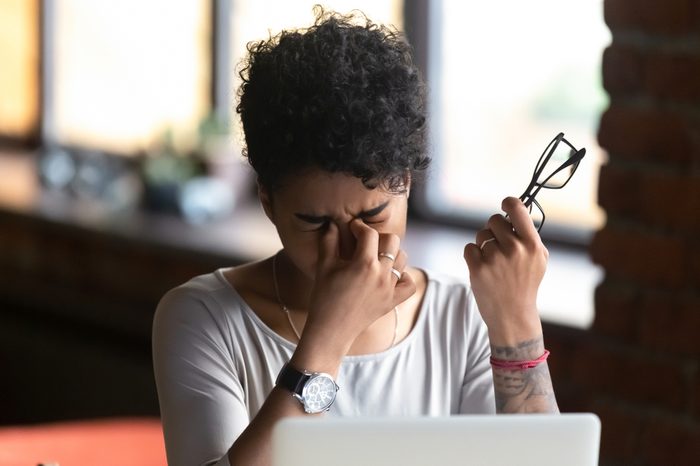
What’s the best way to get enough sleep?
Convenient or not, it’s a biological fact: Adults generally need to sleep between seven and nine hours each night. The thing is, more than a third of us fail to do so on a regular basis, according to the Centers for Disease Control and Prevention. It’s not just a matter of feeling tired the next day; over the long run, sleep deprivation is associated with a greater risk of depression, obesity, type 2 diabetes, stroke, heart attacks, Alzheimer’s disease, and cancer (although in some cases it’s not clear if the sleep problems are a cause or effect of the condition). “The silent sleep-loss epidemic is the greatest public health challenge we face in the 21st century in developed nations,” says Matthew Walker, PhD, of the University of California, Berkeley, in his book Why We Sleep. “Scientists like me have even started lobbying doctors to start ‘prescribing’ sleep.”
Walker’s top tip for a successful “prescription” is sticking to a schedule. The body naturally thrives on a regular sleep-wake rhythm, and a set bedtime will remove some of the temptation to spend your time in other ways. When possible, he also recommends avoiding medicines that could “conflict” with the sleep prescription, such as certain heart, blood pressure, or asthma medications, plus some remedies for colds, coughs, and allergies. There are alternatives available for many of these drugs, so if they’re costing you shut-eye, speak with your doctor or pharmacist. (Don’t stop taking a potentially life-saving medication on your own.)
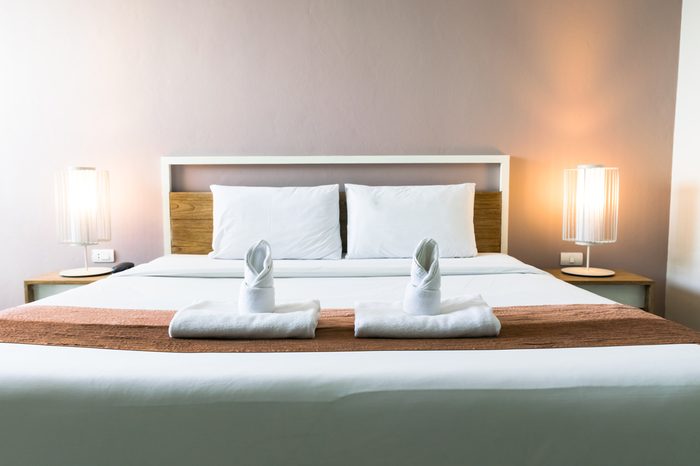
How can I sleep well when travelling?
If you’ve ever tossed and turned in a hotel room, you may have experience with “night-watch brain.” Some research published in Cell found that, similarly to dolphins, pigeons, and other animals, humans rest one half of the brain less than the other when we’re in an unfamiliar setting. This adaptation would have been advantageous for our ancestors, who were at risk of predation in the wild, but it’s far less useful for today’s traveller. You can minimize it by staying at the same hotel for as long as you remain in a city and by booking similar rooms from the same chain wherever you go. (Here’s how to maintain healthy sleep habits while on vacation.)
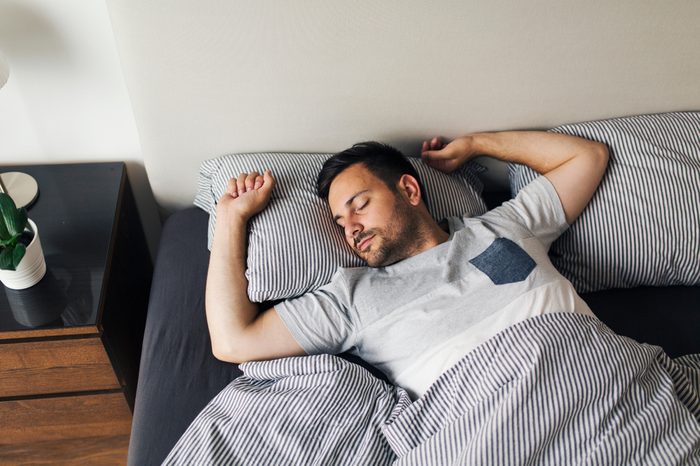
Why aren’t I dreaming?
Scientists used to think that dreaming happened only during REM (rapid eye movement), the last stage of the sleep cycle. We now know that earlier stages can bring wisps of dreams as well, but REM is the time of the most detailed, active, and emotional ones. Sleep deprivation is understood to be dangerous, but REM deprivation is also an issue, claims a 2017 review published in the Annals of the New York Academy of Sciences. Having fewer dreams is associated with mood dysregulation (recurrent temper outbursts or persistent, extreme irritability), pain sensitivity, Parkinson’ disease, anxiety, dementia, and delusions; ironically, it seems that dreaming helps you maintain your sense of waking reality.
Dreams are threatened by alcohol, which helps you nod off faster but then disrupts REM. Benzodiazepines (used as sleeping pills or anti-anxiety medication) “significantly repress REM/dreaming,” the review says. Another common culprit: alarm clocks. They are often necessary, but try to wake up naturally whenever possible in order to avoid interrupting sleep cycles.
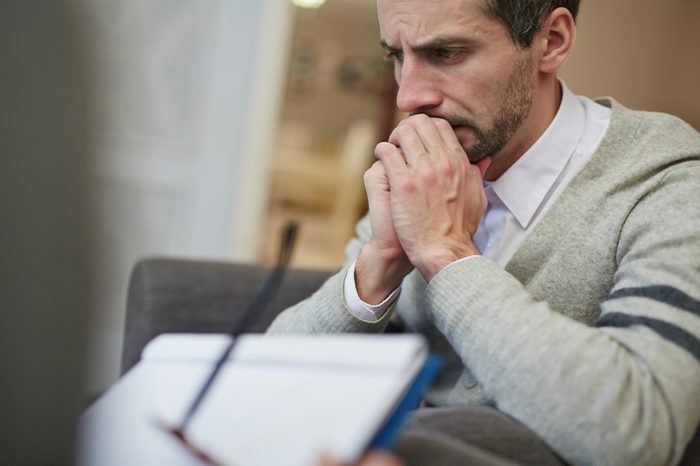
Can I beat chronic insomnia for good?
There’s a heap of different reasons you might have trouble sleeping from time to time. But lasting insomnia often boils down to bad habits, mistaken beliefs, or unhelpful thought patterns—all of which can be tackled by cognitive behavioural therapy (CBT). “For instance, people often think, ‘I won’t be able to function if I don’t have a good night,’ or ‘My bad sleep results from a chemical problem in my brain, so I can’t fix it,’” says Tanja van der Zweerde, a psychologist at Vrije Universiteit Amsterdam. Wakefulness-inducing worries like these can transform what otherwise would have been a rough night or two into a red-eyed vicious circle.
Cognitive behavioural therapy for insomnia, or CBT-I for short, helps you identify and address the roots of your problem. Depending on what they are, it might involve relaxation training, tweaking your lifestyle, or even (paradoxically) learning to let go and stop trying too hard to sleep. Because CBT-I has proven itself to be highly successful—and because it doesn’t bring the risks and side effects of pills—it’s now recommended as the first-line treatment for people with chronic sleep difficulties. Van der Zweerde and her colleagues are currently testing iSleep, one of several online versions that are less costly than in-person therapist appointments.
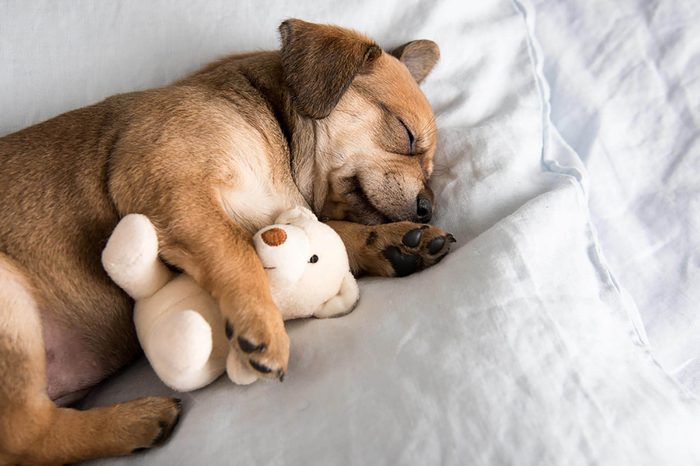
How should I accommodate my pet?
Should you let your dog or cat into your room at night? Mayo Clinic researchers tackled this question by putting accelerometers on volunteers and their dogs for one week. Most of the pooches spent some time playing or moving around while their owners dozed. Even so, they didn’t affect the humans’ sleep much—so long as they weren’t allowed up on the bed. A blanket or a pet bed on the floor would be a good compromise if you’d like to enjoy a comforting canine presence without being disturbed.
(Thinking of getting another dog? Read up on why you should consider adopting an older dog.)
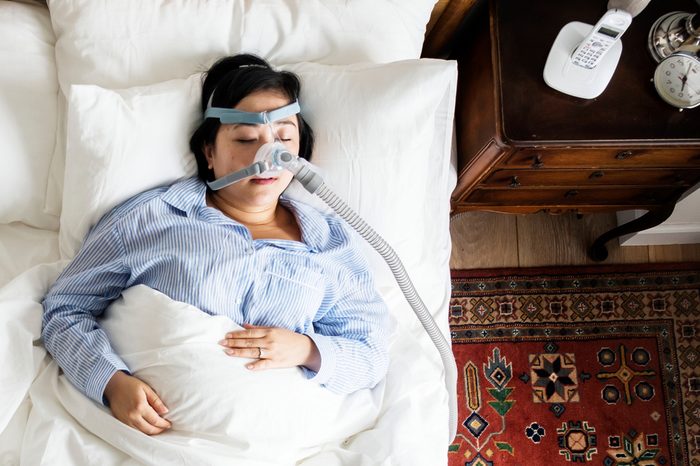
How do I know if I have obstructive sleep apnea?
One of the most common sleep disorders is also a potentially serious one. In obstructive sleep apnea, the muscles in the back of the throat relax too much during slumber, blocking breathing. This causes drops in blood-oxygen levels that, if left untreated, can strain the cardiovascular system and raise the risk of heart problems over time.
People with sleep apnea will automatically wake up long enough to reopen their airways, but they don’t usually remember their episodes come morning. It’s often their partners who flag the disorder after noticing snoring, guttural sounds, or gasping, says Michael Gelb, DDS, MS, a New York-based specialist in breathing-related sleep disorders. People who sleep alone can use a mobile app like SnoreLab to monitor noises. Otherwise, Gelb says, warning signs also include “waking unrefreshed, moodiness, difficulty concentrating, daytime sleepiness, and memory problems.”
Sleep-deprivation symptoms aren’t definitive proof that you have sleep apnea. Nor, for that matter, is snoring, but both are worth investigating. “The diagnosis is ultimately confirmed through a home sleep test or polysomnogram,” says Dr. Gelb. “You can organize this through your medical practitioner.” (Learn the silent signs of sleep apnea you might be ignoring.)
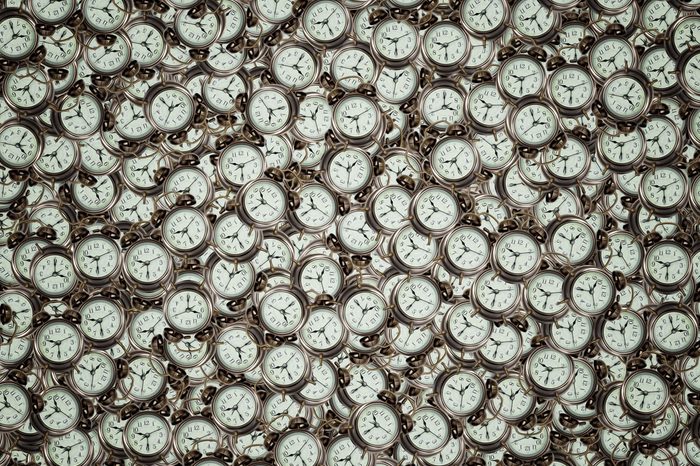
What are the signs that I’m oversleeping?
More isn’t always better: Regularly sleeping more than nine hours at a time is associated with headaches, back pain, obesity, and type 2 diabetes. These risks may be due to an underlying cause (depression, alcohol abuse, and narcolepsy, for example) rather than oversleeping itself. But either way, it’s worth telling your doctor.
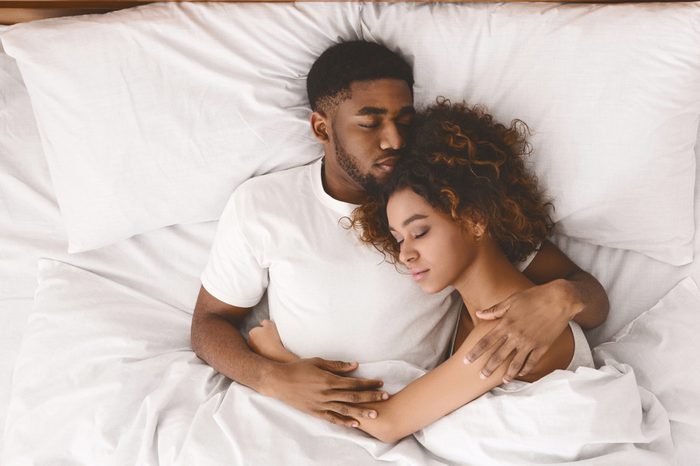
What’s the best way to share a bed?
When it comes to sleeping, there are pros and cons to having a bedmate. Given the common realities of snoring, rolling over, and hogging the blankets, tucking in alone will generally garner better results when one’s sleep quality is measured with objective criteria, such as the amount of slow-wave sleep, a non-REM stage that is key to memory consolidation. On the other hand, people may be satisfied with their shut-eye when they cuddle up next to a loving partner—it releases oxytocin, a feel-good hormone that reduces stress and promotes pair bonding, according to the National Sleep Foundation. To reap the benefits while minimizing the downsides, make sure your mattress is large enough for two, and if your partner’s movements are an issue, opt for memory foam; you’ll be less likely to feel every toss and turn. Also, try working on your partnership. Bad sleep is linked with poor relationship satisfaction and vice versa. It’s an equation that can be tackled from either side.
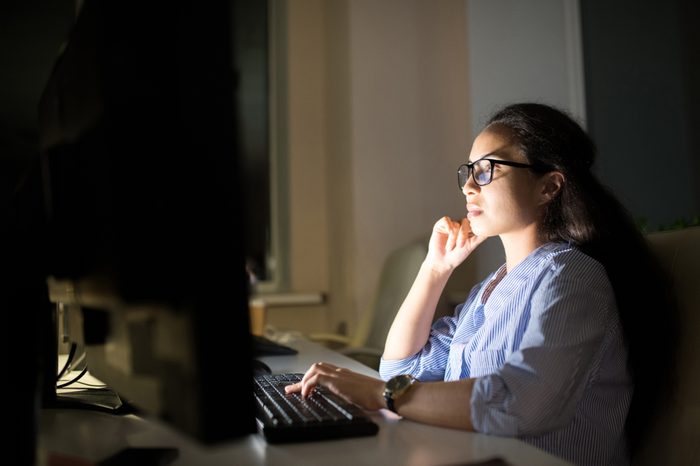
Do I really need to stop using my phone before bed?
The blue part of the light spectrum boosts mood and energy during daytime, but it can throw off your circadian clock in the hours leading up to bedtime. Most of us are getting more blue-light exposure than ever because of smartphones, laptops, and LED light bulbs, which are bluer than their less energy-efficient predecessors. You could cut down on late-day screen time, but if that’s not realistic, try wearing amber-tinted glasses in the evening, as a 2018 study published in the Journal of Psychiatric Research suggests. (Besides blue light messing with your sleep, find out exactly how it can affect your health.)
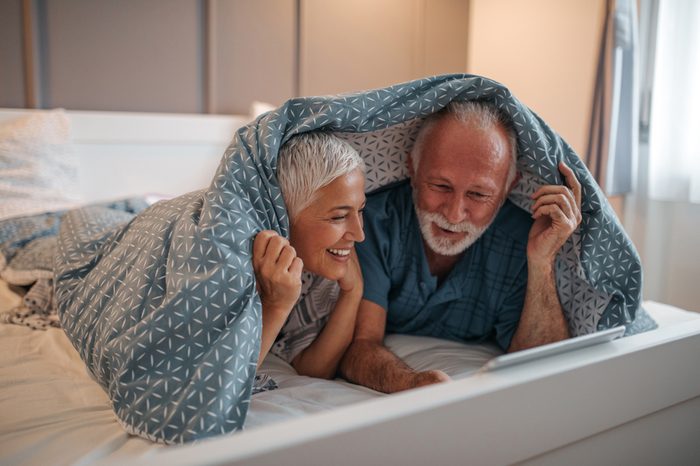
Should I change my sleeping habits as I get older?
You can’t expect to sleep as well at 65 as you did at 20. You’ll sleep for a shorter time and less deeply. Plus, you’ll become more sensitive to interference, such as stress or noise that wouldn’t have roused you when you were younger. As such, you’ll need to take better care of your rest.
These changes definitely have an impact on people during their waking life. Just because something is normal doesn’t mean it won’t have consequences. The decline in sleep quality has the ability to affect memory and overall health. Scientists are working on treatments to help improve sleep in the elderly, but they’re all in the early stages. “For instance, to promote a deeper sleep, researchers are experimenting with transcranial stimulation,” says Julie Carrier, PhD, director of the Canadian Sleep and Circadian Network. “But we can’t yet say for sure that it works.” As for sleeping pills, there aren’t really any pharmaceuticals that can increase sleep—and especially not deep sleep—without having negative consequences the next day.
Dr. Carrier adds that it is OK for tired seniors to nap during the day, so long as that doesn’t lead to insomnia at night. “You need to keep in mind that with age comes an increased chance of various sleep disorders,” she adds. “If you’re excessively tired all day, that’s not among the normal, expected changes. It would certainly warrant a visit to the doctor.” In the meantime, make sure to check out these surprising before-bed habits that may be keeping you from getting a good night’s rest.
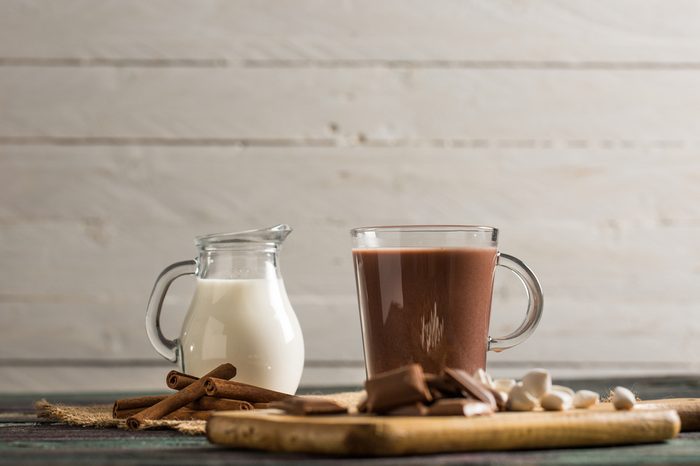
Where can I find hidden caffeine?
Although it’s one of the most famous sleep disruptors, caffeine can still sneak up on you. “It’s tasteless, so you don’t necessarily know how much you’re getting,” explains Neil Stanley, PhD, a member of the European Sleep Research Society. “And it can stick around in your body and affect you for hours if you’re sensitive to it.” Lesser-known caffeine sources include chocolate, soft drinks (such as soda and some vitamin waters), and decaf coffee, which simply contains less of the stimulant than regular joe.
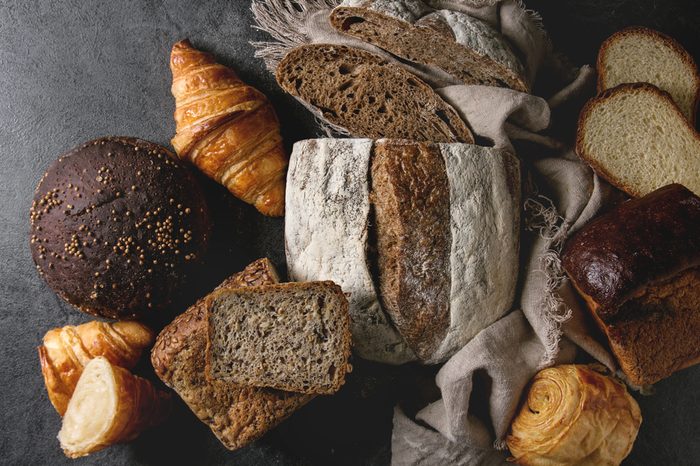
Can I eat anything to help fall asleep?
Popular belief has it that the amino acid tryptophan (of turkey fame) makes you drowsy. The body needs it to build serotonin, a relaxing neurotransmitter, and melatonin, a sleep-regulating hormone, says the National Sleep Foundation. However, it doesn’t trigger changes on its own. To prod your body toward dreamland, fill up on carbohydrate-rich foods along with protein, which is one of the building blocks of tytophan. Carbs help tryptophan cross the blood-brain barrier and induce sleepiness. (FYI: These bedtime snacks will leave you tossing and turning.)
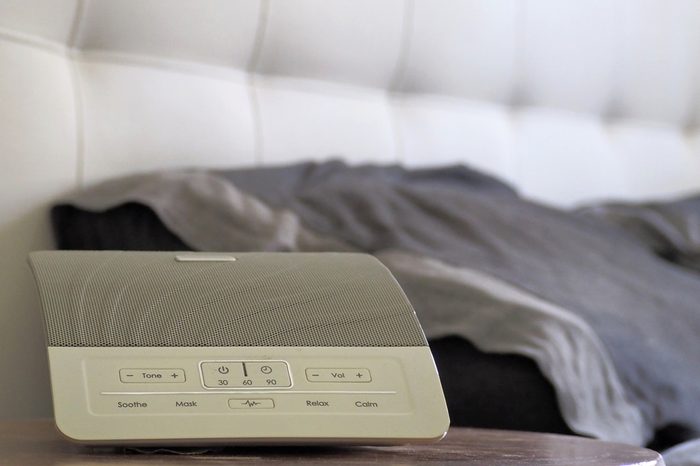
Should I be falling asleep to white noise?
“White noise” has been proven to mask environmental sounds that disturb slumber. Sleep scientists are now interested in “pink noise,” which resembles the white variety except that the lower frequencies are louder than the higher ones. There’s evidence that it can enhance slow-wave sleep. In a 2017 study, seniors did better at a recall test after spending a night with pink noise synced up to their slow-wave brain activity. If you’d like to conduct your own experiment, you can download a pink-noise app.
Now that you’ve got the answers to all of your sleep questions, learn which sleep habits can increase your Alzheimer’s disease risk.
